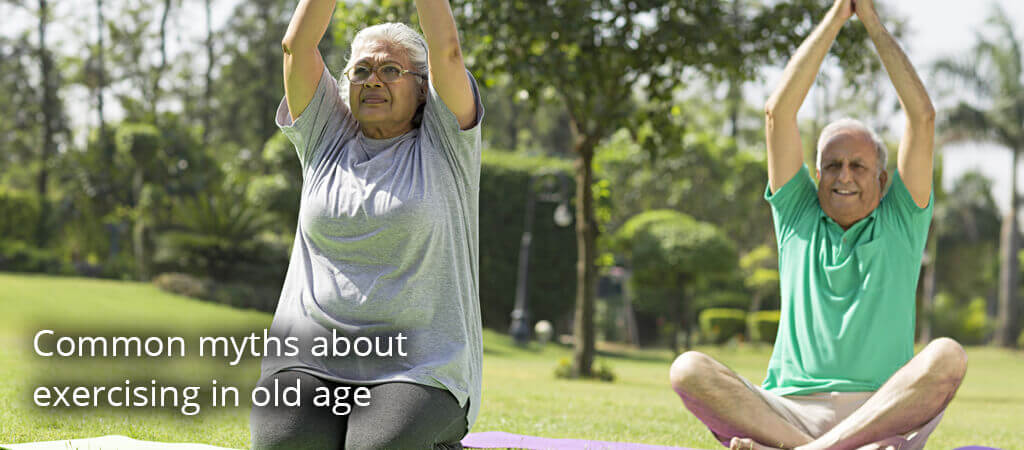Is there a need for home healthcare in India?
Why exercise? I am getting old anyway!
Fact: Exercising, playing a sport or strength training in the gym will help you to feel stronger, look younger and stay active for longer. Regular exercise decreases the risk of your getting affected by a variety of ailments and illnesses – including cardiac issues, diabetes, obesity, high blood pressure, certain cancers, Alzheimer’s and senile dementia. Exercise has been known to stop the decline in strength, stamina and energy that comes with age. And even improve these. Whatever your age, exercise improves your mood also!
Old people should conserve their strength and take it easy
Fact: Many studies and years of research all agree on one thing: a sedentary life style is bad for anyone, at any age, but is specially unhealthy for people over 50. Extended periods of inactivity leads to elders not being able to do things for themselves, being less self-reliant, more hospitalizations, more visits to the doctor and more medications.
If elders indulge in physical activity they could get hurt
Fact: Wrong! Exercising regularly builds strength and stamina, stops the loss of bone mass, improves stability – thus actually lowering the risk of falling.
We are too old to start exercising!
Fact: That is the worst myth ever! No one is too old to start an exercise regime. In fact, people who start exercising later in life tend to show more positive results than their peers or younger counterparts. The reason being that if you have never exercised before, you will also be free of any sports injuries. Thus you will realise the positive effects of exercising much quicker. Just start slowly and keep going…
The disabled can’t exercise sitting down.
Fact: People who are wheelchair bound do face unique challenges but not being able to exercise isn’t one of them. They can do weights, stretches, chair yoga, chair aerobics, chair Tai Chi and even play chair sports (tennis, basketball, swimming come to mind). All these will help to enhance range of motion and muscle tone, cardiovascular health and flexibility.




